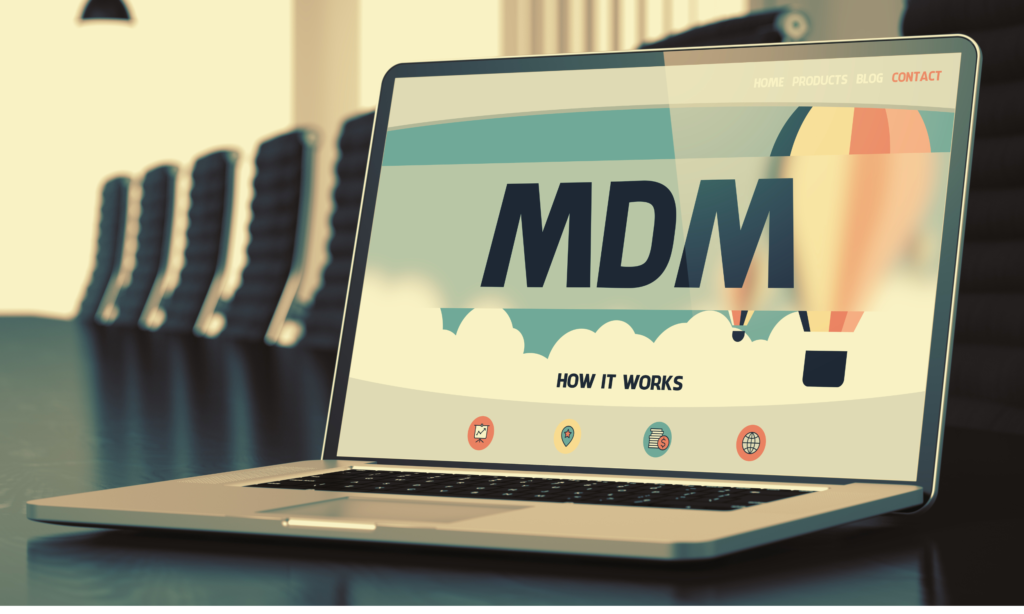
Investing in a Master Data Management (MDM) solution is not necessarily an easy sell to everyone in a business, large or small. The investment is not only monetary, but also in the organisation itself, with an allocation of key personnel and strategic priorities needed to effectively manage MDM projects.
One of the deciding factors for selecting an MDM system is that bad data is bad for business. However, business leaders are often oblivious to how poor quality data undermines their company’s performance or if they are aware they don’t know who is taking responsibility to address the issue.
Business decisions based on insights or analysis that are weak can directly impact profits and productivity. Not having a clear view of the business can obscure opportunities to drive revenue or take the appropriate actions to reduce costs.
Plus, if your end-customers feel through their interactions with your business that you don’t really understand their needs or wants, it can erode loyalty, slow the pace of expansion, and introduce an element of risk into your operation.
Also see: Use Stibo STEP to accelerate digital transformation in manufacturing
Ultimately not having an MDM system in place, can lead to poor data quality, missed opportunities, and perhaps even regulatory non-compliance.
At this moment of time with the global economy facing various stresses and strains, smart organisations are seeking ways to gain a competitive advantage by leveraging their data and the insights it provides.
MDM can quantifiably benefit a business by making information such as customer data, product details, suppliers, and creative assets to be consistently accurate, and accessible at the time they are needed.
What is Master Data Management (MDM)?
MDM processes, policies and technologies, maintain an organisation’s most critical data assets (known as master data) as a single source of truth, used in multiple applications and systems across an enterprise.
An enterprise organisation typically uses an MDM tool such as STEP from Stibo Systems as a centralised repository, managing, updating and storing their master data, thus avoiding the costly inefficiencies caused by silos of data.
STEP (Stibo Systems Total Enterprise Platform) is the most comprehensive software solution for creating, managing, and publishing accurate and consistent master data across your business.
Investing in an MDM system should be regarded as building a foundation on which many other business initiatives will rely upon in the future, with more informed decisions made based on trustworthy data.
A master data foundation refers to the underlying infrastructure and systems that support the collection, storage, governance and management of master data within an organisation.
What are the benefits of an MDM system?
An MDM system will help data accuracy, reduce data redundancy, and improve data quality, all of which can be leveraged to derive more value from the data for the business.
And besides from future-proofing the data foundation for the organisation, there are some immediate benefits that can be achieved with MDM when presenting your internal sales case.
An MDM system helps organisations comply with data privacy regulations, such as the GDPR (General Data Protection Regulation), and reduces the risk of data breaches and security incidents through improved governance.
With a comprehensive view of business data, organisations can gain deeper insights into their own operations and with better data quality reduce the risk of making bad decisions.
And with a single source of truth for business data, organisations can reduce manual data entry from different sources and increase overall operational efficiency.
Read more: How to use Stibo STEP to unlock value in the CPG sector

So, how do you go about selling an MDM solution internally?
To sell the idea of investing in a Master Data Management (MDM) solution internally, you should focus on demonstrating its value and potential ROI for the organisation. Here are some steps to build a persuasive case:
Identify pain points
Begin by identifying the organisation's data-related challenges, such as data inconsistencies, data silos, slow decision-making, or compliance issues. Show how an MDM solution can address these problems.
Present the benefits
Clearly outline the benefits of MDM, such as improved data quality, streamlined operations, better decision-making, enhanced collaboration, regulatory compliance, and increased efficiency.
Quantify the ROI
If possible, quantify the potential ROI by estimating cost savings, revenue growth, or other financial gains that can be achieved through improved data management. Provide case studies or industry benchmarks to support your claims.
Highlight success stories
Share examples of other organisations in your industry or with similar challenges that have successfully implemented MDM solutions and reaped the benefits. This can help demonstrate the potential value of the investment.
Address concerns
Be prepared to address potential objections, such as cost, implementation timeline, or disruption to current processes. Offer solutions or mitigations, and emphasise the long-term benefits of MDM.
Engage stakeholders
Involve key stakeholders from various departments, such as IT, finance, marketing, and operations, in the discussion. Their buy-in and support will be crucial for a successful implementation.
Develop a roadmap
Present a phased implementation plan that outlines the steps needed to deploy the MDM solution, from selecting a vendor to user training and ongoing maintenance. This helps to provide a clear vision and timeline for the project.
Emphasise scalability and flexibility
Highlight the MDM solution's ability to grow and adapt with the organisation, ensuring that it remains a valuable investment in the long term.
Offer a pilot project
Propose a pilot project to demonstrate the effectiveness of the MDM solution in addressing specific pain points. This can provide tangible evidence of the solution's value and build confidence in the investment.
Secure executive sponsorship
Gaining support from top-level management is crucial for securing resources and ensuring the success of the MDM initiative. Present your case convincingly to executives and emphasise the strategic value of MDM for the organisation's future growth.
Unit of Measure - based on 20+ years of MDM experience
Wherever you are on your MDM journey, we can help you.
All our services revolve around helping organisations achieve great business benefits from Master Data Management (MDM) and Product Information Management (PIM).
Based on over 20 years of MDM and PIM experience, we have developed our own unique implementation approach that achieves the fastest time-to-value for your investment, with a low risk of project delays and with a high project success rate.
Book a free consultation with us and let’s explore how we can help you get your master data in shape and prepared for the changes that will be impacting businesses now and in the coming years.